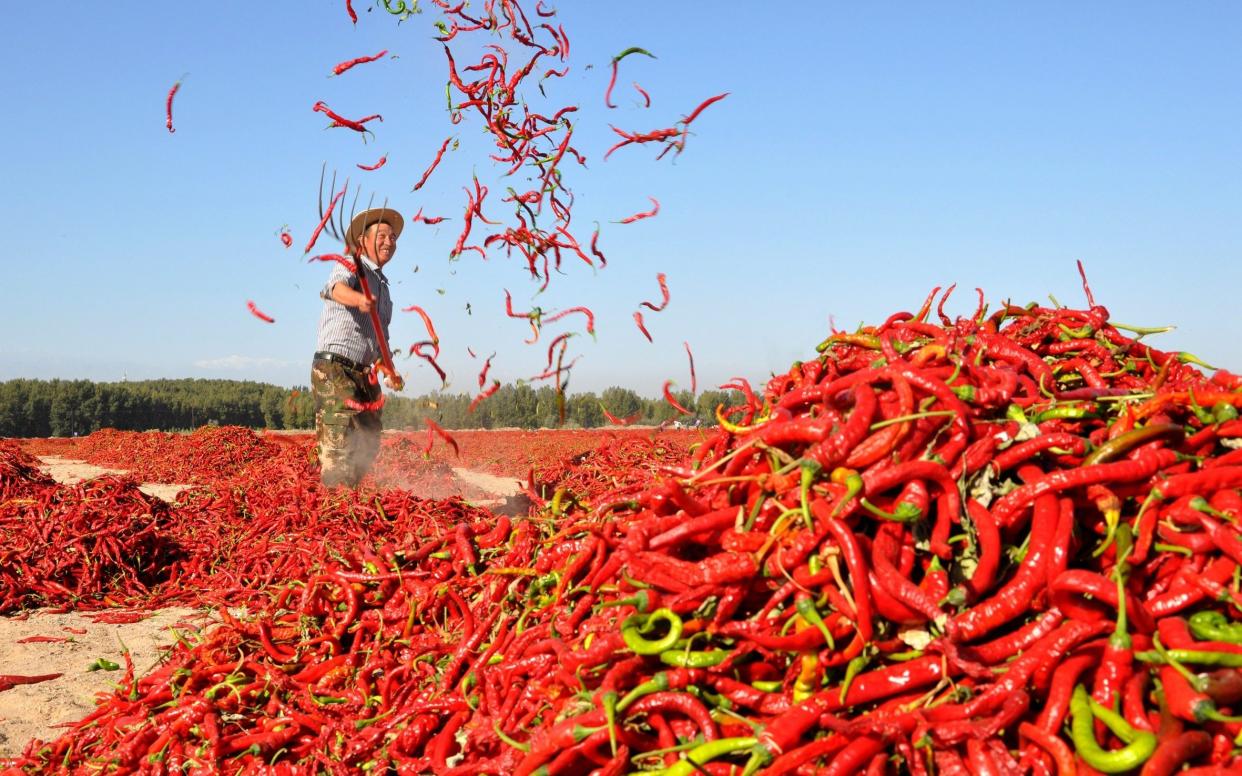Coronavirus has shone a light on inequalities in food system, experts warn


The coronavirus pandemic has exposed the inequalities in the world’s food system with those on poor diets most at risk, the authors of a new report have said.
The annual Global Nutrition Report looks at the state of the global food system and found that there are significant inequalities between and within countries in terms of diet and weight.
The report does not look at the coronavirus pandemic in itself but Renata Micha, associate professor and public health expert at Tufts University in the United States and one of its authors, said the pandemic showed that people who were either under- or overweight were more likely to be badly affected by the disease.
“Malnutrition affects our immune system and leaves us susceptible to infection. Poor metabolic health, such as obesity and diabetes, has been linked to worse coronavirus outcomes.
“It’s now more urgent than ever for governments, businesses and civil society to work together to tackle malnutrition in all its forms,” she said.
Even in rich countries such as the UK the pandemic has disrupted food production but in poorer countries, where levels of malnutrition are already high, experts have warned that the pandemic could lead to a hunger crisis.
Last month the United Nations warned of a famine of "biblical proportions", with 265 million people facing chronic food shortages due to a "perfect storm" of conflict, drought, climate change and coronavirus.
According to the report one in nine people in the world is hungry and one in three is overweight or obese.
Many countries - including in Africa, Asia and Latin America - suffer the double burden of over- and underweight.
While the proportion of people who are underweight has fallen since 2000 the number of people who are overweight and obese has increased. In 2000 31.7 per cent of men and 29.7 per cent of women were overweight. Those figures had increased to 39.2 per cent and 38.5 per cent by 2016.
And 10.6 per cent of men and 6.7 per cent of women were obese in 2000 - but by 2016 those figures had increased to 15.1 per cent and 11.1 per cent.
The report said that poor diets and the resulting malnutrition are among the “greatest current societal challenges”, causing vast health, economic and environmental burdens.

Dr Micha said that people do not choose unhealthy food “by personal choice”.
“Food systems need to change. Covid-19 has revealed the gaps in our food systems - increased shortages in food could lead to increases in hunger. We now have the opportunity to act and to ensure that healthy and sustainably produced food is affordable, available and desirable,” she said.
She added that too many of the world’s poor were reliant on grains or staple crops such as maize while in more developed countries “highly processed foods are available, cheap and intensely marketed”.
The report said that malnutrition in all its forms has become the leading cause of ill health and death, and the rapid rise of diet-related non-communicable diseases such as diabetes is “putting an intolerable strain on food systems”.
The authors welcomed the introduction of measures such as the tax on fizzy drinks but said much more needed to be done to improve food systems.
The report also said that health services needed to do a lot more to tackle malnutrition, with essential nutrition services targeted at those who need them most.
Dr Agnes Kalibata, special envoy, to the 2021 UN Food Systems Summit, said that the fall in incomes from coronavirus will see the world’s poor having to eat even less.
"While we must address the immediate threats and save lives, we also must make choices that build the world we want to live in on the other side of this crisis. The challenges before us loom large, but if we come together to take action, we can transform our food systems so that safe and nutritious food is available to everyone," she said.
Jean-Michel Grand, executive director of Action Against Hunger UK, said the world was on the brink of a "hunger pandemic".
He added: "Now, more than ever, we need to ensure malnutrition is a priority. Millions of people are going to be pushed into a food crisis - because of Covid-19- and that means cases of malnutrition could explode. World leaders must join the dots between Covid-19 and the looming hunger crisis and any successful response must address them in tandem."
Protect yourself and your family by learning more about Global Health Security

